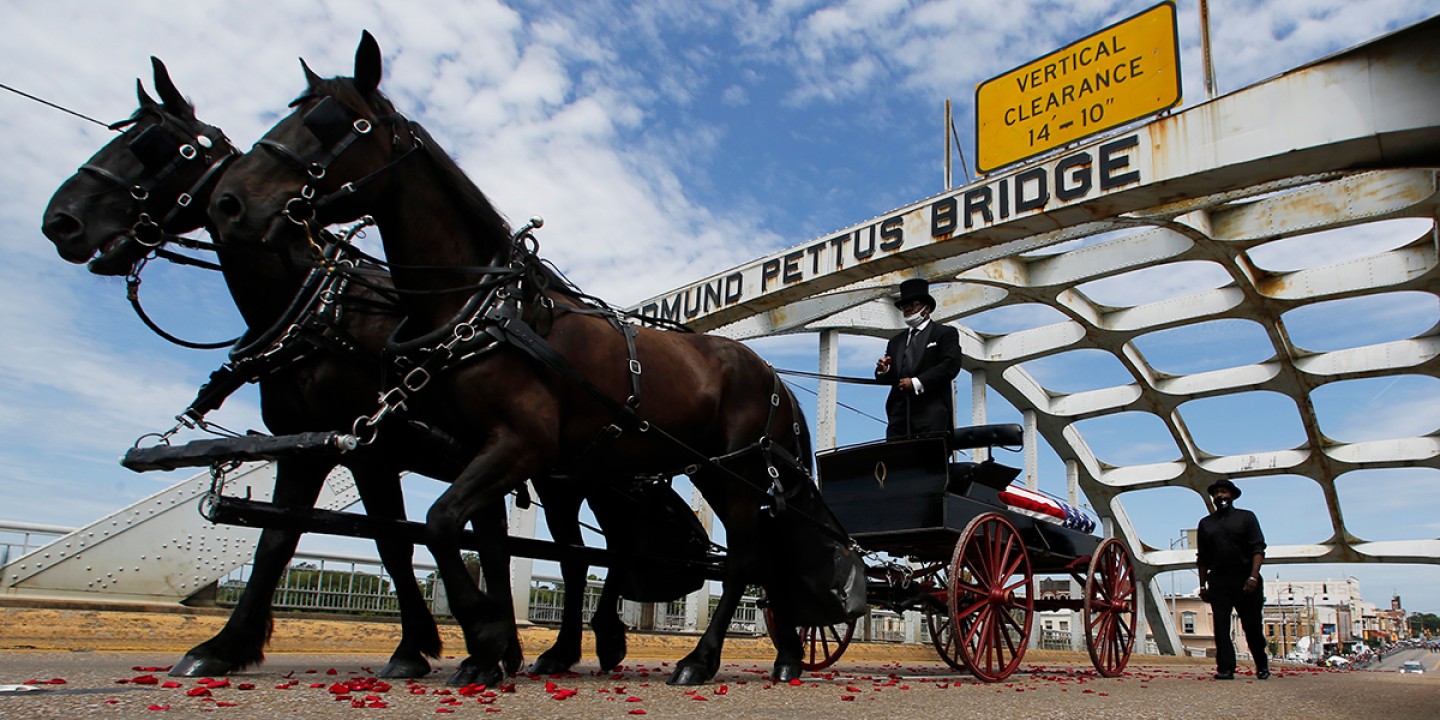Why the John Lewis Voting Rights Advancement Act is necessary
“The vote is precious,” said Lewis. Fifty-five years after Bloody Sunday and the Voting Rights Act, many Americans remain disenfranchised.

As a horse-drawn caisson carried Georgia representative John Lewis’s casket across the Edmund Pettus Bridge in Selma, Alabama, on Sunday, red rose petals on the pavement called to mind the blood he shed there years ago. In March 1965, Lewis and other civil rights activists were beaten by state troopers while marching to secure voting rights for black Americans. The work of these activists led to the passage a few months later of the Voting Rights Act, a federal law prohibiting race-based voter discrimination.
On Monday, while Lewis’s body lay in state in the US Capitol Rotunda, a group of senators who serve on the judiciary committee sent a letter to Chairman Lindsey Graham asking him to schedule a hearing for the John Lewis Voting Rights Advancement Act, which the committee debated last week.
Read our latest issue or browse back issues.
Why is a new voting rights act necessary? Because many Americans are still routinely disenfranchised, and the majority of them are, as the letter says, “minorities, the elderly, those with disabilities, the poor, and college students.” The literacy tests and poll taxes of the 1960s have been replaced with voter ID laws, closures of polling places, and mass purgings of voter rolls. With a national election looming and a pandemic complicating plans for voting, voter suppression efforts have emerged at startling new levels in state and local contexts.
The Voting Rights Act of 1965 provided mechanisms for federal oversight of changes to state and local laws related to voting, including a process called preclearance in jurisdictions with egregious records of race-based voter discrimination. These mechanisms were struck down by the Supreme Court in 2013. Almost immediately, North Carolina and Texas enacted strict voter ID laws that were later deemed by the judicial system as disenfranchising minority voters. Since then, several other states have also enacted laws that restrict access to voting in ways that disproportionately impacts black, Asian, Latino, and indigenous voters.
Without a means of enforcement, legal protections have no power. Nowhere is this more evident than in Lewis’s home state of Georgia, where on a single night in July 2017 more than a half million of the state’s 6.6 million registered voters were purged from the rolls—many simply because they hadn’t voted in the prior few elections.
The John Lewis Voting Rights Advancement Act introduces new mechanisms for the enforcement of voting rights, redefining the circumstances under which preclearance is required and targeting practices that have a history of leading to racial discrimination. The bill is bipartisan, but just barely: it’s supported by all of the Senate’s Democrats, its two independents, and Republican Lisa Murkowski. It’s unlikely to make it out of committee, let alone be passed and then signed into law under the current administration.
Letting proposed legislation languish in committee isn’t anything new; it’s routinely done by members of both parties. The current hindrance of efforts to correct a longstanding social ill—disenfranchisement of US citizens based on their race—is a particularly vivid demonstration of a truth Lewis expressed at the March on Washington in 1963: “American politics is dominated by politicians who build their careers on immoral compromises and ally themselves with open forms of political, economic, and social exploitation.”
If the bill is doomed to fail, then why advocate for it? Because unlikely goals are still worth fighting for. And as Lewis repeatedly said, “The vote is precious. It is almost sacred. It is the most powerful nonviolent tool we have in a democracy.”






